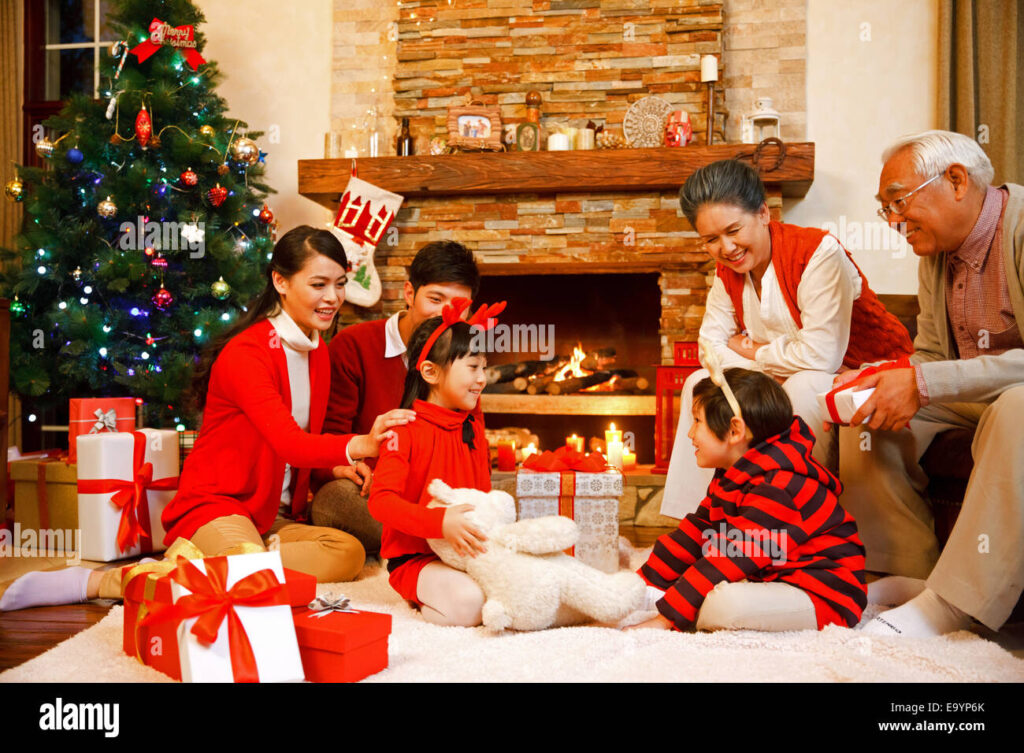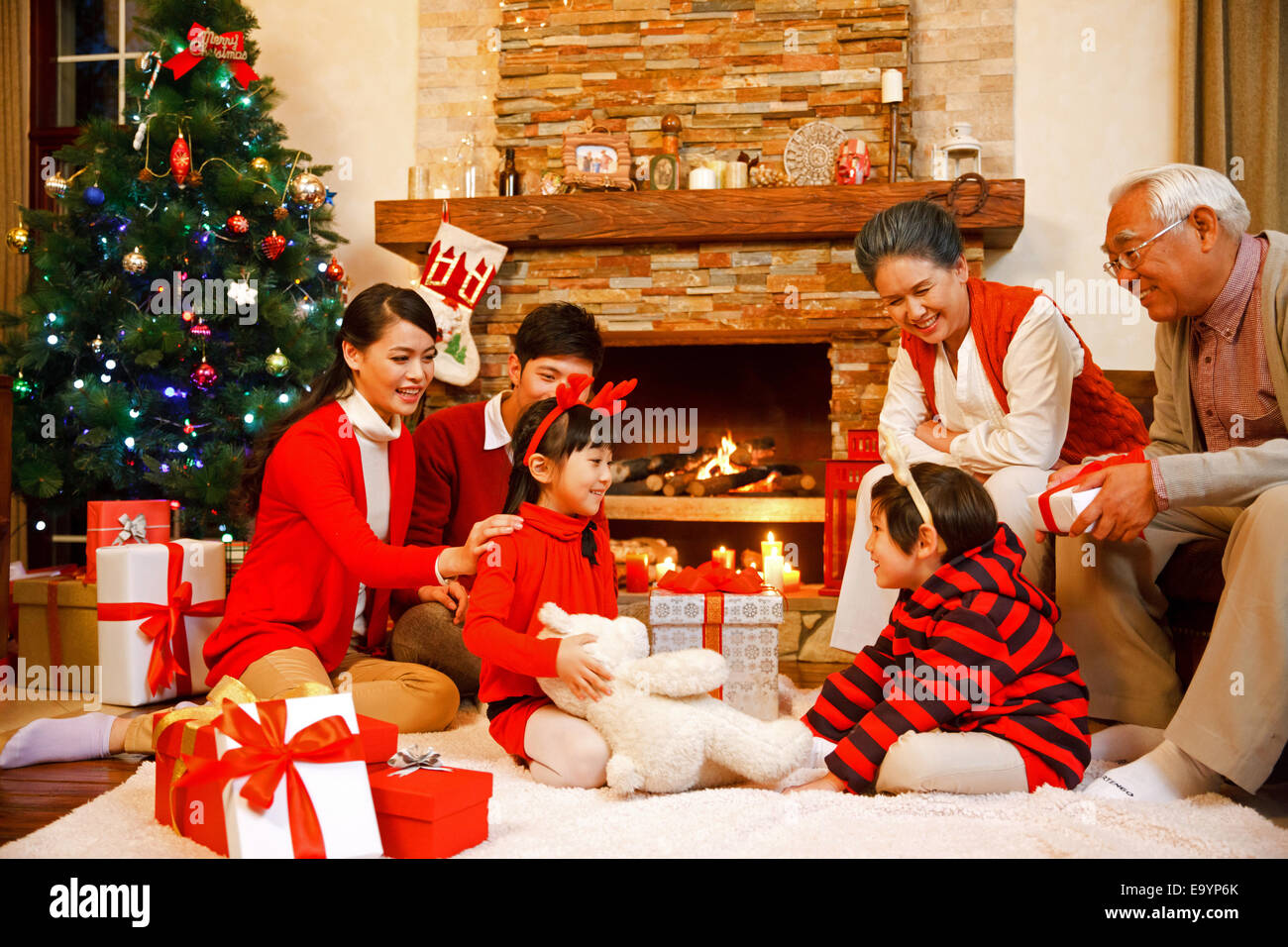
The Enduring Importance of Family in Christmas Celebrations
Christmas, a time steeped in tradition and brimming with cheer, is often synonymous with family. While the dazzling lights, the meticulously decorated trees, and the overflowing tables laden with festive food certainly contribute to the holiday’s magic, it is the presence of loved ones that truly defines the spirit of Christmas. The importance of family in Christmas cannot be overstated; it is the bedrock upon which cherished memories are built and the foundation upon which traditions are passed down through generations. This article will explore the multifaceted role of family in Christmas celebrations, examining its historical roots, cultural significance, and enduring impact on our lives.
A Historical Perspective on Family Gatherings at Christmas
The roots of Christmas celebrations are complex, drawing from both pagan winter solstice festivals and Christian traditions. Early Christian observances of Christmas were primarily religious events. However, as Christmas evolved, it increasingly became a time for social gatherings. The Victorian era, in particular, played a significant role in shaping the modern image of Christmas as a family-centric holiday. Figures like Charles Dickens, with his novel *A Christmas Carol*, emphasized the importance of compassion, generosity, and, most importantly, family in Christmas observances.
During this period, new traditions emerged, such as decorating Christmas trees and exchanging gifts, activities that were often enjoyed within the family unit. These customs helped solidify the idea of Christmas as a time for close-knit gatherings and shared experiences. The emphasis on family during Christmas provided a sense of belonging and continuity, particularly important during a time of rapid social and industrial change.
The Cultural Significance of Family Traditions During Christmas
Across different cultures, the specific traditions associated with Christmas may vary, but the underlying theme of family unity remains constant. Whether it’s the Italian tradition of the Feast of the Seven Fishes, the German custom of St. Nicholas Day, or the Mexican celebration of Las Posadas, these customs are typically observed with family members and passed down through generations. These traditions serve as a powerful way to connect with one’s heritage and reinforce family bonds.
Furthermore, the act of creating new family traditions during Christmas can be just as meaningful. Baking cookies together, watching classic Christmas movies, or volunteering at a local shelter are all ways to create lasting memories and strengthen the sense of family identity. These shared experiences become part of the family‘s narrative, providing a sense of continuity and belonging for years to come. [See also: Christmas Traditions Around the World]
The Emotional Impact of Spending Christmas with Family
Beyond the historical and cultural aspects, spending Christmas with family has a profound emotional impact. For many, Christmas is a time of nostalgia, evoking memories of childhood celebrations and loved ones who may no longer be present. The act of gathering with family can provide a sense of comfort and security, particularly during times of stress or uncertainty. The support and love offered by family members can be invaluable in navigating the challenges of life.
However, it’s also important to acknowledge that Christmas can be a difficult time for some. Family dynamics can be complex, and past hurts or unresolved conflicts may surface during the holidays. For those who are estranged from their family or have experienced loss, Christmas can be a reminder of what is missing. In these situations, it’s crucial to be mindful of individual needs and to find ways to create new traditions or connect with chosen family members.
Navigating Modern Challenges to Family Christmas Gatherings
In today’s fast-paced world, maintaining family traditions during Christmas can be challenging. Geographical distance, work commitments, and differing opinions can all make it difficult to gather the entire family together. However, with a little planning and flexibility, it is still possible to prioritize family during the holidays. Virtual gatherings via video conferencing can be a great way to connect with loved ones who are unable to travel. [See also: Tips for a Stress-Free Christmas]
Compromise is also key. It may not be possible to fulfill everyone’s wishes, but by being willing to adjust expectations and find common ground, families can create a Christmas celebration that is meaningful for everyone. Ultimately, the most important thing is to focus on spending quality time together and creating lasting memories, regardless of the specific activities or traditions involved. The presence of family is what truly matters.
The Future of Family in Christmas Celebrations
As society continues to evolve, the way families celebrate Christmas will likely change as well. However, the fundamental importance of family will remain constant. Whether it’s through traditional gatherings or virtual connections, the desire to share the holiday season with loved ones will endure. The key is to adapt to changing circumstances while preserving the values of love, compassion, and togetherness that are at the heart of the Christmas spirit.
Furthermore, as families become more diverse and blended, it’s important to be inclusive and welcoming of all members. Embracing different traditions and creating new ones that reflect the family‘s unique identity can strengthen bonds and create a sense of belonging for everyone. The celebration of family in Christmas should be a reflection of the love and support that exists within the family unit, regardless of its structure or composition.
Tips for Strengthening Family Bonds During Christmas
- Plan activities together: Involve everyone in the planning process to ensure that everyone’s interests are considered.
- Create new traditions: Develop new traditions that reflect the family‘s unique identity and values.
- Spend quality time together: Put away distractions and focus on connecting with each other.
- Express gratitude: Take time to express appreciation for each other and the blessings in your lives.
- Be mindful of individual needs: Recognize that Christmas can be a difficult time for some and be supportive of their needs.
- Forgive and let go: Use the holiday season as an opportunity to forgive past hurts and move forward.
Conclusion: The Enduring Legacy of Family in Christmas
In conclusion, the importance of family in Christmas celebrations is undeniable. From its historical roots to its cultural significance and emotional impact, family plays a vital role in shaping the Christmas experience. While the specific traditions and customs may evolve over time, the underlying value of family unity will remain constant. By prioritizing family during the holidays, we can create lasting memories, strengthen bonds, and pass down a legacy of love and togetherness to future generations. As we celebrate Christmas, let us remember the true meaning of the season: the joy of being together with those we love, cherishing the family that enriches our lives and makes the holiday season truly special. The enduring legacy of family in Christmas will continue to be a source of comfort, joy, and inspiration for years to come. Remember to cherish your family this Christmas.

